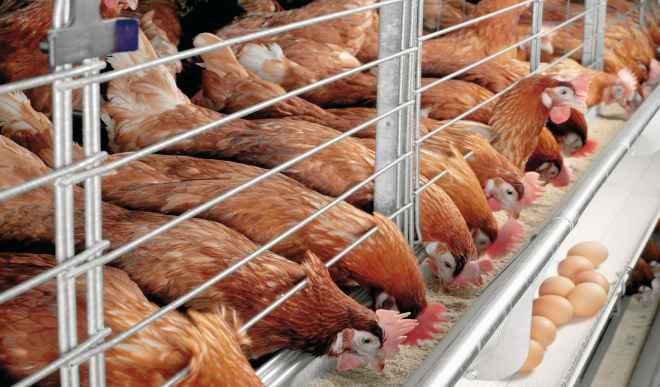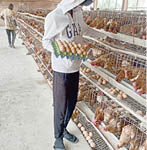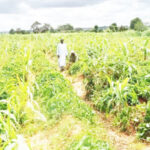The Nigeria poultry industry is in the midst of a crisis, which has forced a crippling glut- that has knocked not a few farmers sideways. To all intents and purposes, it has been gored and bloodied by the sharp spear of the botched currency redesign policy that precipitated a cash crunch.
The losses are just too colossal and the weight of the pain thereof too heavy to keep one calm. It’s already clear that it would never be the same for many given the scale of the losses. People are routinely counting their losses and of course losing valuable sleep.
The crisis is coming on the back of other debilitating crisis like the bird flu, insecurity and the resultant high cost of key input in feed production and the big one – the COVID- 19 pandemic, which saw to the imposition of lockdown that according to experts resulted to about N1.5 trillion in losses.
The Poultry Association of Nigeria has already put a figure on the current losses to about N30 billion. Not a few players are swathed by a huge blanket of loans needed to stay afloat before the rattling punch of the current crisis. Before now, a lot of the poultry farmers have been braving a singularly difficult operating environment.
Spain tops export destination of Nigerian products in Q4,2022
NIMASA committed to ease of doing business – Jamoh
The subsector is a giant in the agricultural sector, which contributes about 25 per cent to the sector. Its value is put at $4.2 billion.
According to the Commonwealth Scientific and Industrial Research Organisation (CSIRO), Nigeria leads in the annual egg production in Africa while it occupies the second largest position in poultry population with 180 million birds. About 85 million Nigerians are engaged in the subsector preponderantly in small to medium scale. In addition, it provides about 300Mt of meat and 650Mt of eggs annually. It means whatever happens to the subsector easily has a ripple effect on the agricultural sector and the economy as a whole.
Again, the subsector is commercialised and vibrant. It is private sector led. It is consequential to the country as the population is projected to be about 400 million in 2050 and a substantial chunk would be city dwellers, which comes with concomitant increase in the demand for poultry products that ordinarily should elicit support to the subsector. It is a veritable vehicle for attaining the Sustainable Development Goals (SDGs)
The industry requires all the sympathy and support that can be mustered. It shouldn’t just be allowed to walk the cold and lonely path of adversity given the centrality of the industry to the socioeconomic wellbeing of the country. It goes without saying that the poultry industry is susceptible to crises of different nature on the strength of the short shelf life of its important product and the lethal effect on the input supply chain.
The government seems to be in a mute mode over the matter. Its swift intervention is imperative at this critical point to preclude the following among other things: the rolling back of the recorded gains and technical expertise that has put the country in the league of the top players in the industry in the continent, divestment from the industry as result of flagging investors’ confidence and the placing of poultry protein out of the easy reach of a large segment of the population.
It is, however, time to begin to explore the oft-mentioned value addition in the industry. It will be revolutionary to say the least. The conversion of the raw eggs to powder form is feasible in the country.
Our food and beverages company includes powered eggs in bread, biscuit, noodles, ice-cream and a host of other products. Undoubtedly, the attempt will save the country the humongous loss of scarce foreign exchange and for good measure inject more jobs and serve as a safeguard against the occasional glut. Also, the school feeding programme will have to be seen as a means of absorbing the huge amount of eggs produced by the industry. Governments at all levels would have to retool and bolster the scheme in making it work not only effectively but sustainably. The private sector has a role to play in supporting the scheme through the agency of Corporate Social Responsibility (CSR), which will serve as a boon to the poultry industry.
Abachi Ungbo wrote via [email protected]

 Join Daily Trust WhatsApp Community For Quick Access To News and Happenings Around You.
Join Daily Trust WhatsApp Community For Quick Access To News and Happenings Around You.


